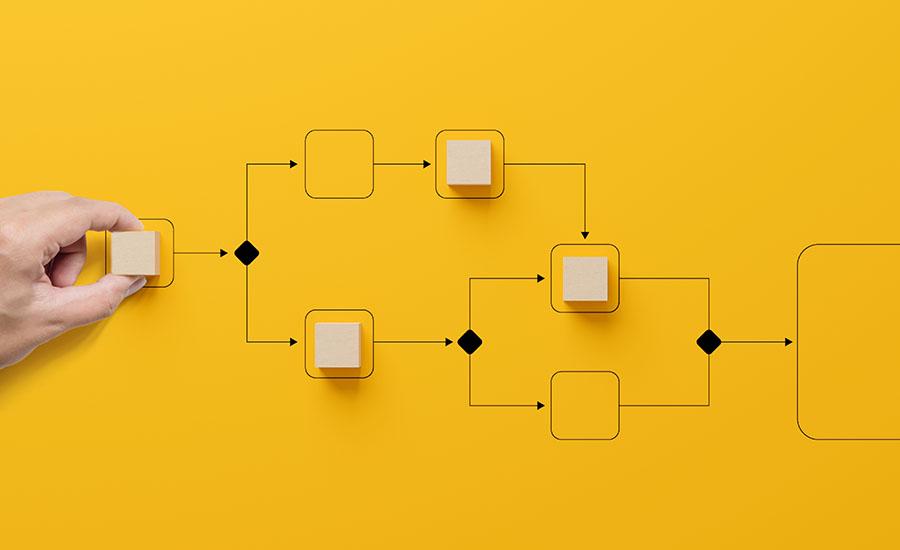Grades:
3rd Grade, 4th Grade, 5th Grade, 6th Grade
Students discover kite-making in this hands-on lesson! They create a kite with a variety of materials and test out the final product. This lesson can be adapted to fit different grade levels.
Grades:
6th Grade, 7th Grade, 8th Grade
In this lesson, students will investigate the properties of a mixture, as if it were a contaminated soil sample near a stream. This activity will show students that heterogeneous mixtures can be
Grades:
5th Grade
In this engaging lesson, students work together to design a water filtration system to separate pollutants from water. This lesson takes about 120 minutes to complete. Various resources are included!
Grades:
6th Grade
To demonstrate their understanding of how energy is passed throughout an ecosystem and the symbiotic relationships of organisms within an ecosystem, students construct a food web marble run. This
Grades:
1st Grade
What is the life cycle of a butterfly? How do butterflies use their wings? Answers to these questions and more are in this engaging lesson. The challenge for the students is to create a butterfly
Grades:
2nd Grade
In this food-related lesson, students use the engineering design process to create solar ovens and cook s'mores. They engage in critical thinking as they construct their design and test out the oven
Grades:
6th Grade
In this 1st lesson in a series of 3, students learn about the Great Pacific Garbage Patch. They create a model and write and defend a claim about humanity's ability to mitigate the problem. This
Grades:
5th Grade
In this fun lesson, students create models of the Earth, sun, moon, and planets that can go on robots. They experiment with light and movement to demonstrate the rotation of sun, earth, and moon using
Grades:
5th Grade, 6th Grade, 7th Grade, 8th Grade
In this creative lesson, students explore states of matter as they fuse glass. During this process, students are actively engaged as they design an art piece, work on measurements, and collaborate
Grades:
5th Grade
After watching a video of the space station, students will design and build a model space station containing certain requirements. Students will use scale in order to create a blue print and then
Grades:
8th Grade
Using rock salt, ice, juice, and thermometers, students will use their inquiry framework to investigate how slushies are made and see if they are able to replicate the results of a traditional slushy
Grades:
6th Grade, 7th Grade, 8th Grade
In this lesson, students will show how heat transfers into an egg during the hard-boiling process, and additionally, different methods of how heat can transfer out of an egg during the cooling process
Grades:
6th Grade
In this hands-on lesson, students will construct a paper windmill. They put it to the test by using a fan to see how their fan holds up to the wind. This is a great way to cover science, engineering
Grades:
Kindergarten, 1st Grade
In this fun lesson, students will develop a simple sketch and a physical model of a float to illustrate how the shape of an object helps it function as needed to solve a given problem. They will then
Grades:
6th Grade
In this 1-day lesson, students are challenged to collaborate with their teams to create a plan and use PVC halves to transport 1 golf ball 75 feet without touching the ball or allowing the ball to
Grades:
4th Grade
The students will work in groups to create a model of a roof that is able to survive a hurricane-like wind. Students learn about disaster preparedness, use the engineering design process to guide the
Grades:
6th Grade, 7th Grade, 8th Grade
In this engaging lesson, students explore and observe thermal shock by watching marbles bake and placed in ice water. Science and math concepts are covered in this unique lesson as well as visual arts
Grades:
8th Grade, 9th Grade
Make quadratics come alive with stomp rockets! This is a 3-4 hour learning experience where students will build and launch paper rockets, then use the data to create quadratic equations.
Grades:
5th Grade
In this creative lesson, students will create a simple machine to retrieve objects through a makeshift storm drain. There is a potential literacy integration and a focus on the engineering design
Grades:
4th Grade
Students will be able to design a method of protection for the Earth’s land that would withstand the impact of rainfall on soil and prevent erosion. Students will discover that the soil with
Grades:
6th Grade
This is the second part of the egg drop challenge. Students will improve on their original design and make a new design to test and analyze.
Grades:
6th Grade, 7th Grade, 8th Grade
In this hands-on lesson, students will consider what they think about several different closed systems. Then students will design and carry out investigations of living things to inform their closed
Grades:
5th Grade
In this lesson, students comprehend basic physics concepts that are applicable to constructing a device that protects an egg from breaking when dropped. Team building and self-reflection are key
Grades:
3rd Grade, 4th Grade, 5th Grade
Students will be learning and practicing the concepts of reflection and refraction through this engaging STEM activity.
Featured Lesson Plans
Check out these notable lesson plans.

Featured
Zippy the Elf's Zipline Zone
Grades:
6th Grade
In this creative engineering design lesson, students are challenged to use an inclined plane to create a safe and exciting zipline park for Zippy the Elf. This lesson reviews simple machines and has

Grades:
3rd Grade
This lesson is about exploring Arizona's state bird, the cactus wren, that lives in the desert, has special body parts and behaviors that help it survive in its harsh environment. Students will learn

Grades:
Kindergarten, 1st Grade
In this primary Kindergarten-1st grade STEM lesson, students will learn to define algorithm, bug, and debug in reference to programming. Through engagement with a virtual simulation, students will
